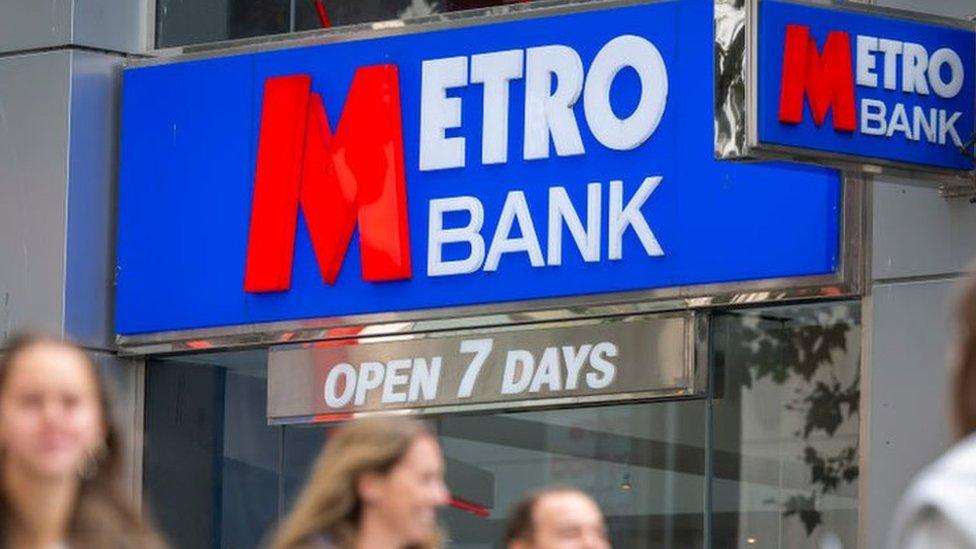Metro Bank has a limited future, claims co-founder
- Published
- comments
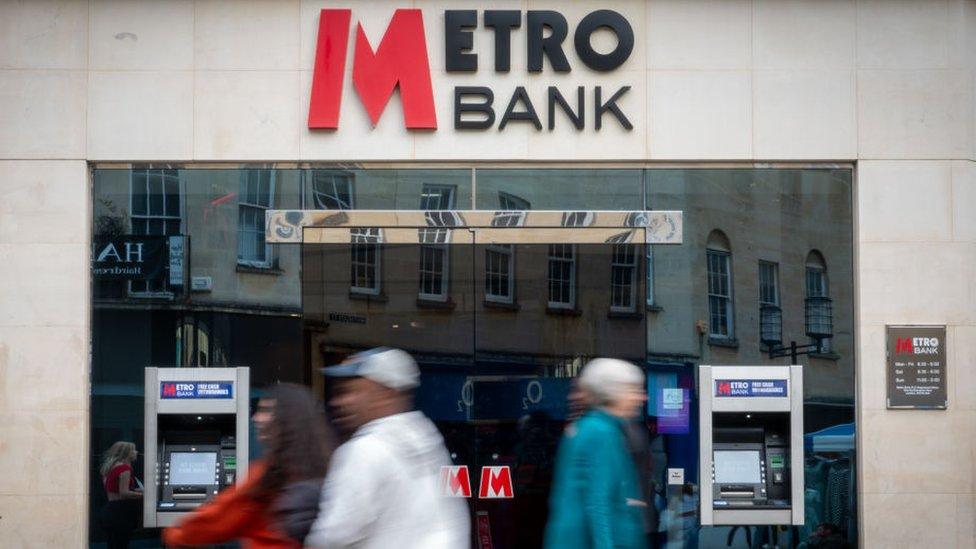
Metro Bank faces a "limited future" if it continues with its strategy of focusing on High Street branches, the co-founder of the bank has said.
On Sunday, Metro Bank agreed a deal to raise funds that it said would secure its future, after days of speculation over its financial position.
It also said it would continue to focus on bricks and mortar branches.
But Anthony Thomson, the bank's chairman from 2010 to 2012, told the BBC that was a "flawed strategy".
He told the Wake Up To Money programme that the combination of pursuing a branch-based strategy given its financial position gave Metro "a very, very limited future".
"I would not like to be the chairman or the chief executive of Metro Bank today," said Mr Thomson, who after leaving Metro Bank in 2012 set up Atom Bank - an internet-only company that has no physical branches.
When the financing deal was announced late on Sunday, Metro Bank's current chief executive, Daniel Frumkin, said the deal marked "a new chapter" for the bank.
The bank is still planning to open 11 new stores in the north of England by 2025. However, analysts have said that branches are expensive and run counter to the trend of consumers switching to online banking.
Metro Bank was founded in 2010 in the wake of the financial crisis and was the first to open in the UK in more than 100 years.
It positioned itself as a so-called "challenger" bank to the big High Street names, with its promise of keeping branches open seven days a week. It currently has 76 branches, and also offers online and mobile banking services to consumers and businesses.
However, the lender faced a major challenge in 2019 following an accounting scandal, which led to some top executives leaving the company.
More recently, it had asked regulators to reduce the amount of money it had to hold in reserve to cover its mortgage lending. That would have freed up cash so it could go out and continue to grow its business.
But regulators turned down the request last month, knocking about 20% off Metro's share price.
Last week, the bank's share price slumped again following reports that it was seeking to raise money from investors. This led to several days of speculation about the bank's future until the fund-raising deal was announced late on Sunday evening.
"It's terrible to see what's happened to such a great bank, and more importantly, a bank that had such a great customer franchise," Mr Thomson said.
"It's been a huge success. from a customer perspective, financially, less so."
He said the bank had "never really recovered" from the accounting scandal in 2019.
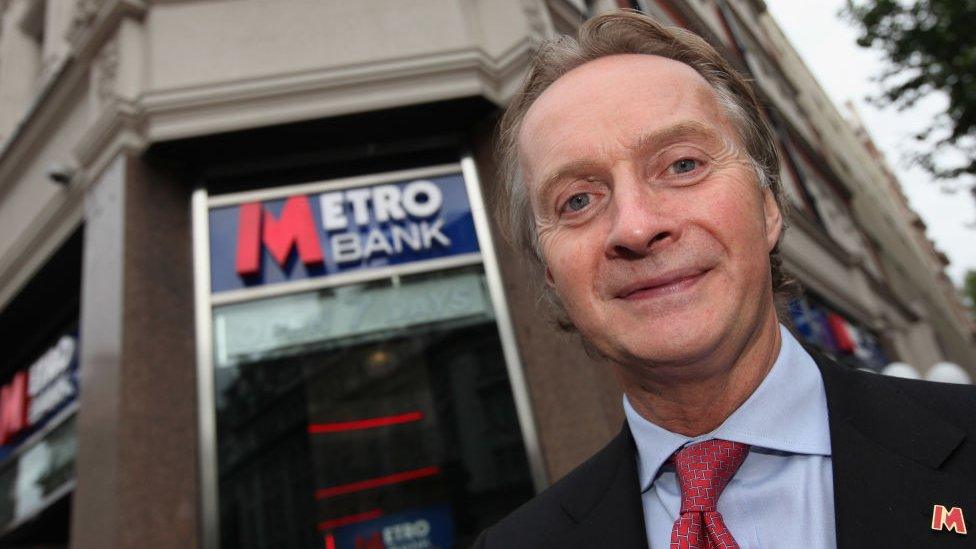
Anthony Thomson co-founded Metro Bank in 2010
When it announced the financing package, Metro Bank said it had seen a "recent increase in deposit outflow rates" from current accounts ahead of the deal.
However, throughout the speculation of the past few days, the bank has insisted that its finances remain strong and it continues to meet all regulatory requirements.
Under the terms of the financing deal, Colombian billionaire Jaime Gilinski Bacal will become Metro Bank's controlling shareholder with a 53% stake.
His firm, Spaldy Investments, will sink £102m into the bank.
Metro Bank's shares rebounded on Monday following news of the deal and continued to rise on Tuesday to trade at about 55p.
However, the share price has more than halved since the start of the year, and is well below the peak of £40.19 it reached in 2018.

Who is Jaime Gilinski Bacal?
In Colombia Jaime Gilinski is a household name. Locally, he's never too far away from the headlines, with his business empire growing from strength to strength it would seem, both at home and abroad.
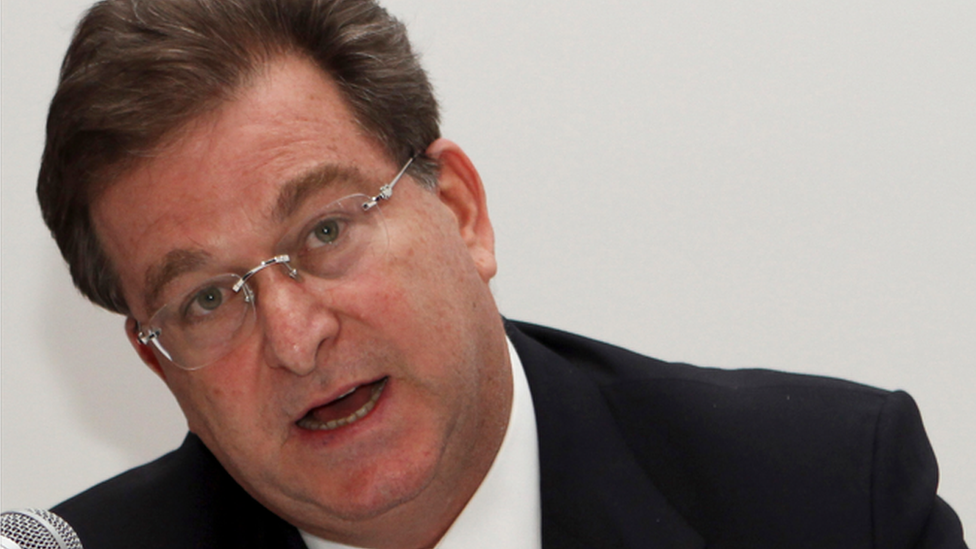
The 65-year-old businessman was born in Cali, a descendant of Lithuanian immigrants. His family set up several mid-sized businesses and built a reputation for themselves within Colombia's Jewish community and across the city.
But Mr Gilinski had bigger ambitions. After a US education he had a stint on Wall Street, and led his family group into purchasing several banks in Colombia and abroad.
A smart operator, Mr Gilinski has aligned himself with Colombia's political and business elite over the years.
Most recently, in 2022 Gustavo Petro was elected as the country's first left-wing president, promising action against what he called the country's "oligarchy".
However, local media reported that Mr Gilinski had quietly been building relations with Mr Petro, helping to avoid becoming a target.

Related topics
- Published30 November 2023
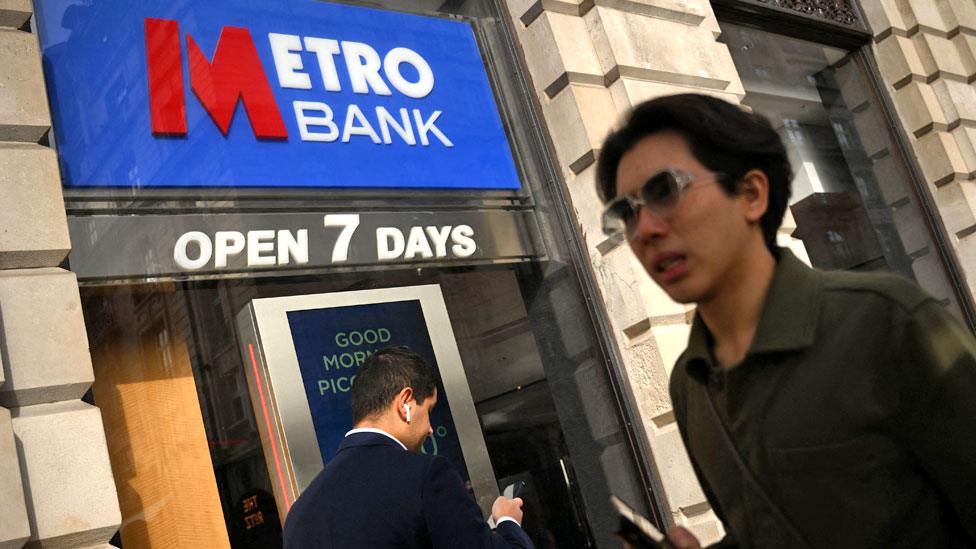
- Published9 October 2023
